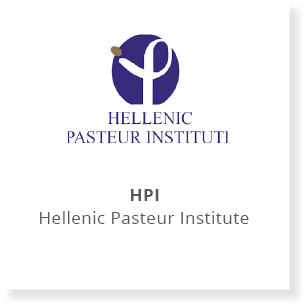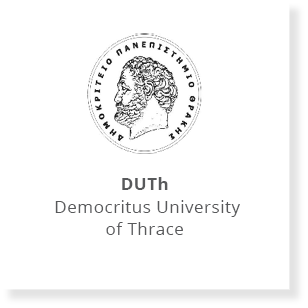



Sample preparation
| Mammalian expression
DESCRIPTION
The description of this service is not available.
HELLENIC PASTEUR INSTITUTE
LOCATION:
Athens, Greece | https://www.pasteur.gr/en/
RELEVANT STAFF:
Avgi Mamalaki
,
Alexios Dimitriadis
,
Petros Heliadis
,
Evangelia Sotiropoulou
,
Marios Zouridakis
,
Konstantinos Lazaridis
,
Paraskevi Zisimopoulou
SERVICE DETAILS:
High-yield expression system based on transfected mammalian cells for the production of recombinant proteins with complex post-translational modifications. Apart from the available adherent cells, our Institute has the expertise in using the highly sophisticated system of mammalian Expi293F cells which ensures rapid and high-yield protein production from high density suspension culture. The culture's supernatant is filtrated and then concentrated/dialysed by use of tangential flow filtration systems. The subsequent isolation of the recombinant proteins is achieved through chromatographic analysis.
RELEVANT EQUIPMENT:

EQUIPMENT UNIT:
Pellicon 2 by Millipore
TYPE:
Tangential flow filtration cassette
ADDITIONAL INFO:
LOCATION:
Building 6 (groundfloor) HPI
DESCRIPTION:
FUNDER:
DESCRIPTION:
FUNDER:

EQUIPMENT UNIT:
Vivaflow 200 by Sartorius
TYPE:
Tangential flow filtration cassette
ADDITIONAL INFO:
LOCATION:
Building 6 (groundfloor) HPI
DESCRIPTION:
FUNDER: Inspired
DESCRIPTION:
FUNDER: Inspired

EQUIPMENT UNIT:
Heracell 150 by Thermo Electron
TYPE:
CO2 Incubator
ADDITIONAL INFO:
LOCATION:
Building 6 (groundfloor) HPI
DESCRIPTION:
FUNDER:
DESCRIPTION:
FUNDER:

EQUIPMENT UNIT:
LVC-5A1 by ESCO
TYPE:
Vertical Laminar Flow Cabinet
ADDITIONAL INFO:
LOCATION:
Building 6 (groundfloor) HPI
DESCRIPTION:
FUNDER:
DESCRIPTION:
FUNDER:

EQUIPMENT UNIT:
TOS-3530CO2 by MRC
TYPE:
Orbital Shaker
ADDITIONAL INFO:
LOCATION:
Laboratory of Molecular Biology and Immunobiotechnology
DESCRIPTION:
FUNDER:
DESCRIPTION:
FUNDER:

EQUIPMENT UNIT:
YY3009000 XX6700P10 by Millipore
TYPE:
Pressure filtration system
ADDITIONAL INFO:
LOCATION:
Building 6 (groundfloor) HPI
DESCRIPTION:
FUNDER:
DESCRIPTION:
FUNDER:
RELEVANT EXPERTISE:
DEMOCRITUS UNIVERSITY OF THRACE
LOCATION:
Komotini | http://duth.gr/
RELEVANT STAFF:
MARIA PAVLAKI
,
Katerina Katsani
SERVICE DETAILS:
Some des
RELEVANT EQUIPMENT:

EQUIPMENT UNIT:
incubator BJPX-B250III/ Biological Safety Cabinet BSC-1300IIA2-X/ Inverted microscope OX.2053-PLPH by BIOBASE, EUROMEX
TYPE:
BASIC EQUIPMENT FOR CULTURING INSECT CELLS (baculovirus expression system)
ADDITIONAL INFO:
LOCATION:
DEPARTMENT OF MOLECULAR BIOLOGY AND GENETICS, DEMOCRITUS UNIVERSITY OF THRACE
DESCRIPTION:
FUNDER: INSPIRED -RIS
DESCRIPTION:
BIOBASE Biochemistry incubator, BIOBASE Biological Safety Cabinet Class II A2, Euromex Inverted microscope (OX.2053-PLP, euromex)
FUNDER: INSPIRED -RIS
RELEVANT EXPERTISE: